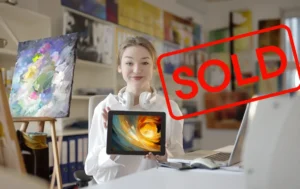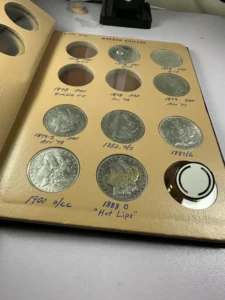Museums, often perceived as repositories of history and art, serve as more than just places for the public to admire and study artifacts. In today’s world, these institutions are increasingly becoming crucial allies to collection entrepreneurs—individuals or organizations engaged in the acquisition, preservation, and management of valuable collections. Collection entrepreneurs include a wide variety of professionals, ranging from art dealers to antique curators to those involved in the management of specialized items such as rare books, coins, or even pop culture memorabilia.
The role of museums in supporting these entrepreneurs is multifaceted and dynamic, as they offer valuable resources, expertise, and networks that can significantly enhance the success and sustainability of private collections. By fostering an environment of collaboration, education, and preservation, museums provide essential support that helps collection entrepreneurs thrive while also enriching the cultural landscape. This article will explore how museums contribute to the success of collection entrepreneurs, highlighting key impacts, real-world examples, and the lasting importance of this partnership for the future of the museum and collection industries.
Key Impacts of Museums on Collection Entrepreneurs
1. Expertise in Collection Preservation and Conservation
One of the primary roles of museums is to preserve and conserve artifacts, ensuring they remain in good condition for future generations. This expertise is invaluable to collection entrepreneurs, who may not have the same resources or knowledge when it comes to handling, storing, or restoring valuable items. Museums employ conservators and preservation experts who specialize in various types of materials, whether they be artworks, historical documents, textiles, or rare artifacts.
Collection entrepreneurs benefit from the extensive knowledge that museums have accumulated over decades, especially when they encounter difficult preservation challenges. Museums can guide the best methods for storage, display, and conservation, helping entrepreneurs ensure that their collections maintain their value over time. In addition, many museums have established conservation laboratories and offer consultation services to private collectors, ensuring that sensitive materials are well taken care of.
2. Research and Documentation
Another critical service that museums offer to collection entrepreneurs is their expertise in research and documentation. Museums are often at the forefront of studying collections, whether through curatorial work or scholarly research. This expertise can be extremely beneficial to collection entrepreneurs who may be acquiring items with little to no provenance or historical context.
By working with museums, collection entrepreneurs can access primary research, databases, and scholarly publications, providing them with crucial information about the items in their collection. Museums also have access to cutting-edge technology, such as digitization tools and advanced tracking systems, which can be used to create accurate inventories and records for private collections. This documentation not only helps preserve the historical value of an item but also ensures that the collection can be accurately authenticated and valued, both of which are essential for the growth of a collection’s marketability.
3. Networking and Collaboration Opportunities
Museums are central hubs for cultural exchange, education, and collaboration. As such, they provide a unique platform for collection entrepreneurs to connect with curators, researchers, and other collectors. Many museums host special events, conferences, and exhibitions, which offer opportunities for entrepreneurs to network and engage with other like-minded individuals.
These events can lead to collaborations between museums and private collectors, facilitating the sharing of resources, knowledge, and collections. Museums often rely on private collections for temporary exhibitions, providing entrepreneurs with the opportunity to showcase their items to a broader audience. In return, collection entrepreneurs gain access to the museum’s network of patrons, sponsors, and cultural leaders, which can boost the visibility and credibility of their collections.
4. Marketing and Exhibition Opportunities
One of the most direct ways museums support collection entrepreneurs is by offering opportunities for exhibitions. Museums, especially those with a strong reputation, attract significant foot traffic, drawing in visitors from around the world. By lending collections to museums for special exhibitions or becoming involved in collaborative projects, collection entrepreneurs can significantly increase the exposure of their items.
Moreover, the expertise of museum curators in designing and organizing exhibitions is invaluable. Museums ensure that exhibits are presented professionally and engagingly, helping entrepreneurs maximize the impact and visibility of their collections. The exposure that comes from such exhibitions can lead to increased market interest, higher valuation, and even sales for entrepreneurs in certain cases.
Real-World Examples of Museums Supporting Collection Entrepreneurs
1. The Smithsonian Institution and Private Collectors
The Smithsonian Institution, one of the largest and most prestigious museums in the United States, has long been known for its collaborative efforts with collection entrepreneurs. Through its vast network and resources, the Smithsonian has helped private collectors expand their collections while preserving historical objects for future generations. One notable example is the collaboration between the Smithsonian and private collectors of Native American art and artifacts. These collectors have lent their items to the museum for exhibitions and research, benefiting from the museum’s conservation services and historical research.
In turn, the Smithsonian benefits by incorporating significant objects into its collections that may otherwise remain in private hands. This relationship allows for the expansion of both public and private collections while enriching the cultural landscape.
2. The Getty Museum and Art Entrepreneurs
The Getty Museum in Los Angeles has been a key player in supporting art entrepreneurs, particularly those dealing in European and American art from the Renaissance to the present day. The Getty Research Institute, part of the museum complex, provides entrepreneurs with access to a vast archive of art historical research. The museum also collaborates with private collectors through its Provenance Research Project, a global effort aimed at investigating the history of ownership of artworks, particularly those looted during World War II.
Through these initiatives, collection entrepreneurs benefit from the Getty’s expertise in provenance research, which can greatly enhance the value and legitimacy of their collections. Additionally, the museum’s global reputation adds prestige to the works of art it displays, providing entrepreneurs with invaluable marketing and exhibition opportunities.
3. The Museum of Modern Art (MoMA) and Private Art Collectors
The Museum of Modern Art in New York has long been involved in supporting private art collectors, particularly those specializing in modern and contemporary art. MoMA has hosted exhibitions that feature the works of private collectors, many of whom have worked with the museum’s curators to present their collections in new and engaging ways. The museum’s reputation in the art world lends significant credibility to the collections it showcases, attracting attention from art critics, collectors, and galleries around the world.
In return, entrepreneurs gain access to MoMA’s substantial network of collectors, art dealers, and high-net-worth individuals, which can lead to increased sales or opportunities to sell or donate artwork to other museums. MoMA’s engagement with private collectors demonstrates the mutually beneficial relationship that can exist between museums and collection entrepreneurs.
Conclusion
Museums play an integral role in supporting collection entrepreneurs, offering valuable resources, expertise, and networking opportunities that help private collections flourish. Through their focus on preservation, research, and exhibition, museums provide collection entrepreneurs with the tools they need to ensure the long-term success of their ventures. By collaborating with museums, collection entrepreneurs can enhance the value, visibility, and marketability of their collections, while museums can expand their own collections and increase their cultural relevance.
As the world of collecting continues to evolve, the partnership between museums and collection entrepreneurs will only grow stronger. The shared goals of preservation, education, and cultural enrichment make this collaboration one of the most dynamic and beneficial aspects of the museum world today. Whether through temporary exhibitions, collaborative research, or the provision of expert conservation services, museums are indispensable partners for collection entrepreneurs, ensuring that valuable collections continue to be cherished, preserved, and shared with the world.
For collection entrepreneurs looking to expand their horizons, working with museums offers a pathway to success and a deeper connection to the broader cultural landscape. This relationship, built on mutual respect and a shared vision for the preservation of history and culture, is sure to remain a cornerstone of the museum and collecting industries for many years to come.






